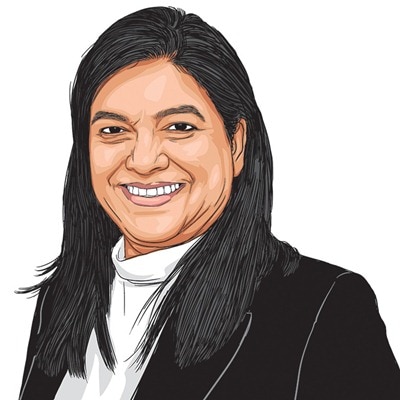Opinion Not just Aryan Khan — the common man deserves an apology
Does the agony of a global superstar eclipse the torment of the aam (common) father, who waits endlessly for the trial of his son, as the wheels of the justice system grind painfully slow?
 There is no gainsaying the distress that the media spotlight, an inevitable consequence of fame, might have imposed on Aryan Khan. (File)
There is no gainsaying the distress that the media spotlight, an inevitable consequence of fame, might have imposed on Aryan Khan. (File) In the spirit of constructive discourse, we wish to build upon the insights shared by a senior police officer (‘Dear Aryan Khan‘, IE, May 17). His articulation of the recent high-profile drug case involving Aryan Khan offers a compelling view into the workings of our law enforcement and judicial systems, while calling for necessary changes. The trials faced by the Khan family as their son was embroiled in a controversial case is a hardship that we wouldn’t ever wish upon anyone. However, one cannot help but question the bias in our collective empathy.
Does the agony of a global superstar eclipse the torment of a common father, who waits for a trial for over two decades? This troubling facet of our justice system is something we must strive to rectify. Alongside this imbalance, the strained dynamic between investigating agencies and the judiciary has affected countless individuals, who, through no fault of their own, find themselves caught in the crossfire.
We wish we could say that the eagerness displayed by the citizens of our country to watch this case unfold came from a place of genuine concern and empathy. That, unfortunately, is not the case. As correctly pointed out, it was our society’s urge to fulfil its “voyeuristic and insensitive” urges that drove media houses across the country to blast our television screens with daily updates. This may seem cynical but if most of our citizens truly wanted to gauge the way our justice system dealt with someone accused of drug possession, we wouldn’t have had national news presenters holding forth on whether Aryan Khan had access to Parle G biscuits in jail or not.
Beyond the glare of this media spectacle, ordinary citizens continued to grapple with as bad, if not worse, circumstances. According to the India Justice Report 2022, 77 per cent of all prisoners in India are “undertrials” with close to 35,000 being incarcerated for more than three years. It is also worth noting that most came from economically backward backgrounds with 25.2 per cent being illiterate. For these men and women to even get a chance to voice their pain on a national platform is almost unthinkable.
There is a paradox inherent in privilege, which often simultaneously attracts the glare of public attention but also buffers against the harsh realities of protracted judicial proceedings. There is no gainsaying the distress that the media spotlight, an inevitable consequence of fame, might have imposed on Aryan Khan. However, the remaining facets of his privileged status likely contributed significantly to the relatively brief duration of his incarceration, though in a fair society, no one should be falsely tried or persecuted.
The advantage conferred by Shah Rukh Khan’s fame extends beyond the superficiality of media coverage and fame. Consider the substantial legal fees commanded by prominent advocates which, in monetary terms, rival the annual income of most Indians. Contrast this with access to legal aid — which is woefully inadequate. There are just five legal aid lawyers available per 1,00,000 people. Justice U U Lalit’s remarks in April underscore this — while the provision of legal aid is indeed a commendable humanitarian act, its quality often falls short of the rigorous standards necessary when one’s future hangs in the balance.
None of this is to contend against the privileges people have due to their success. The point is the difference between Aryan Khan’s experience and the everyday reality of our justice system. The system that most citizens encounter is considerably more severe, relentless and draining, laced with uncertainties that engender a pervasive sense of hopelessness. The truth of this system is not entirely hidden, with popular films like Jolly LLB highlighting this plight.
The conversation around police and judicial reform must move towards a holistic approach. India is in dire need of a comprehensive plan that aggregates valuable insights from principal stakeholders, weaves in critical reforms over a measured timeframe, and tracks key performance indicators — access to lawyers, conviction rates, complaints of police misconduct, and the confidence citizens place in our law enforcement. Such concerted efforts could potentially culminate in a justice system that aligns more closely with the ideals of fairness and equality.
Sethy is an undergraduate student of Finance and Economics, University of Toronto. Joshi is a retired wing commander, Indian Air Force







